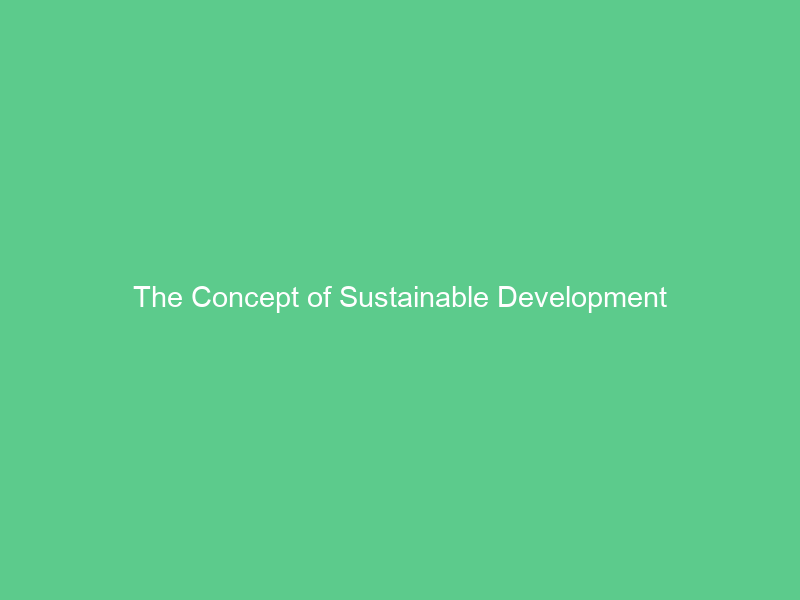Sustainability has emerged amid global concerns regarding environmental protection, economic growth and social development. Researchers believe that society, economy and environment must work in concert with nature’s regenerative potential for maximum sustainability.
Sustainable development involves creating prosperity without undermining future generations’ abilities to meet their own needs, with non-negotiable environmental limits and an established ‘floor’ of needs in place.
Environmental Protection
Sustainable development means protecting our planet from degradation, and using limited resources within their regenerative capacities (Kanie & Biermann, 2017). Professionals working in sustainability can contribute to sustainable development by helping business leaders plan for future needs while adhering to eco-friendly principles when setting goals and meeting objectives.
Brundtland Report defined sustainable development as “development that meets the needs of present generations without undermining their ability to meet future generations’ needs”. One key concept behind sustainable development is acknowledging that natural capital cannot be replaced with economic capital and must therefore be preserved, nurtured, and regenerated if possible. Environmental aspects related to sustainable development include conservation of ecosystems; improved quality air, water, land; reduction of greenhouse gas emissions as well as restructuring economic models with unsustainable consumption patterns – this aspect also concerns social justice and inclusion among others.
Economic Growth
The economic pillar of sustainable development involves providing individuals with access to high standards of living by providing adequate health care, education, jobs and environmental protection; also including gender equality promotion and reduction of social inequalities.
Attaining this goal requires maintaining production levels below resource consumption rates, with waste production falling within the capacity of the environment for absorption. Simply stated, economy must operate under the principle of conserving natural resources without over-exploitation (Kanie & Biermann 2017).
Agenda 21 was issued as an outcome of the United Nations Conference on Environment and Development held in 1992, calling upon countries to “Think Globally, Act Locally.” This philosophy suggests that local initiatives can support sustainability goals by funding sanitation programs that provide clean drinking water; combat hunger through community food banks; or support recycling initiatives. Individuals can help by advocating for indigenous rights or demanding an end to deforestation and land-grab activities that threaten biodiversity.
Social Development
Social development is one of the core elements of sustainability, including equality promotion, access to education and health care, decent work conditions, community participation and protecting human rights while protecting natural resources and biodiversity.
Sustainable development means considering the needs of future generations when planning and making decisions that impact sustainable development, such as protecting natural life-support systems from being compromised and providing all peoples with equal access to fulfilling their aspirations.
To achieve this goal, people living in poverty must be empowered to move out of it – access to decent work is a proven means of empowerment. Furthermore, individuals must receive adequate social protection in order to reduce risks. Furthermore, in order to ensure no one falls through the cracks it is imperative that support is offered to individuals facing barriers towards reaching the SDGs, such as women, indigenous peoples or those with disabilities.
International Cooperation
Sustainable development refers to any development which meets people’s needs without jeopardizing future generations’ ability to meet theirs, which takes into account that natural resources cannot be infinitely replenished; overexploiting them may result in irreparable negative consequences (Paxton 1993).
Sustainable development emphasizes understanding the interdependencies among economic, social and environmental progress as part of an interdisciplinary framework, taking an integrative approach to policy making. This idea is manifest in 17 Sustainable Development Goals set with ambitious targets to be reached by 2030.
There is much disagreement regarding how best to achieve these goals, with “strong” sustainability advocates holding that lifestyle changes and economic models must change while “weak” sustainability proponents tending toward optimism regarding technological innovation and its ability to solve resource and pollution issues. Implementing these goals requires cooperation across borders as well as between sectors within countries.

